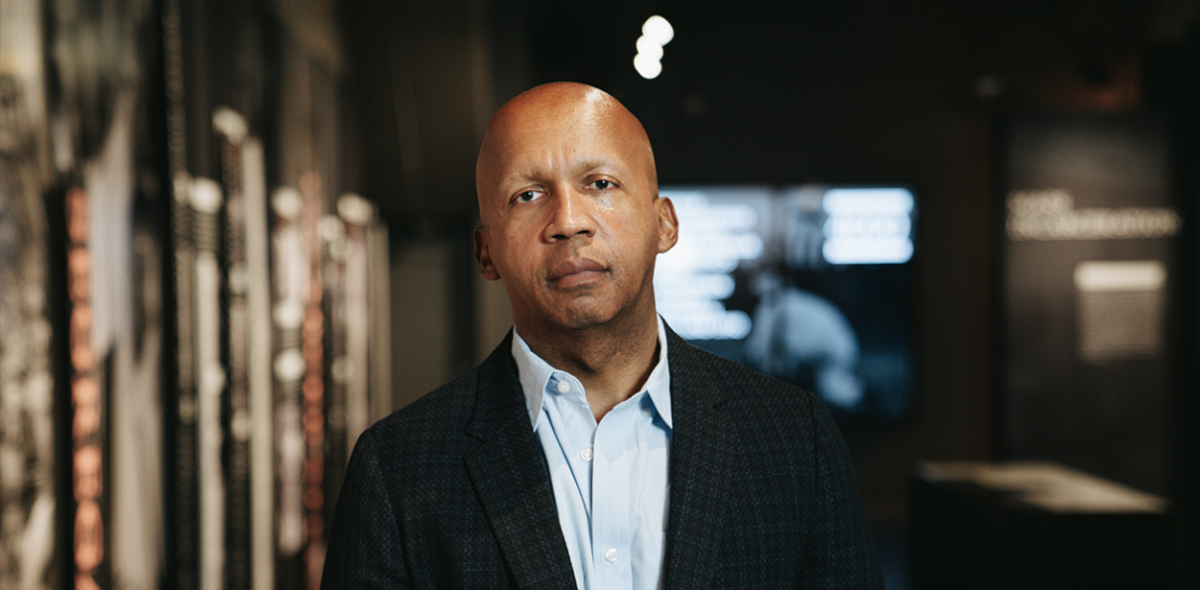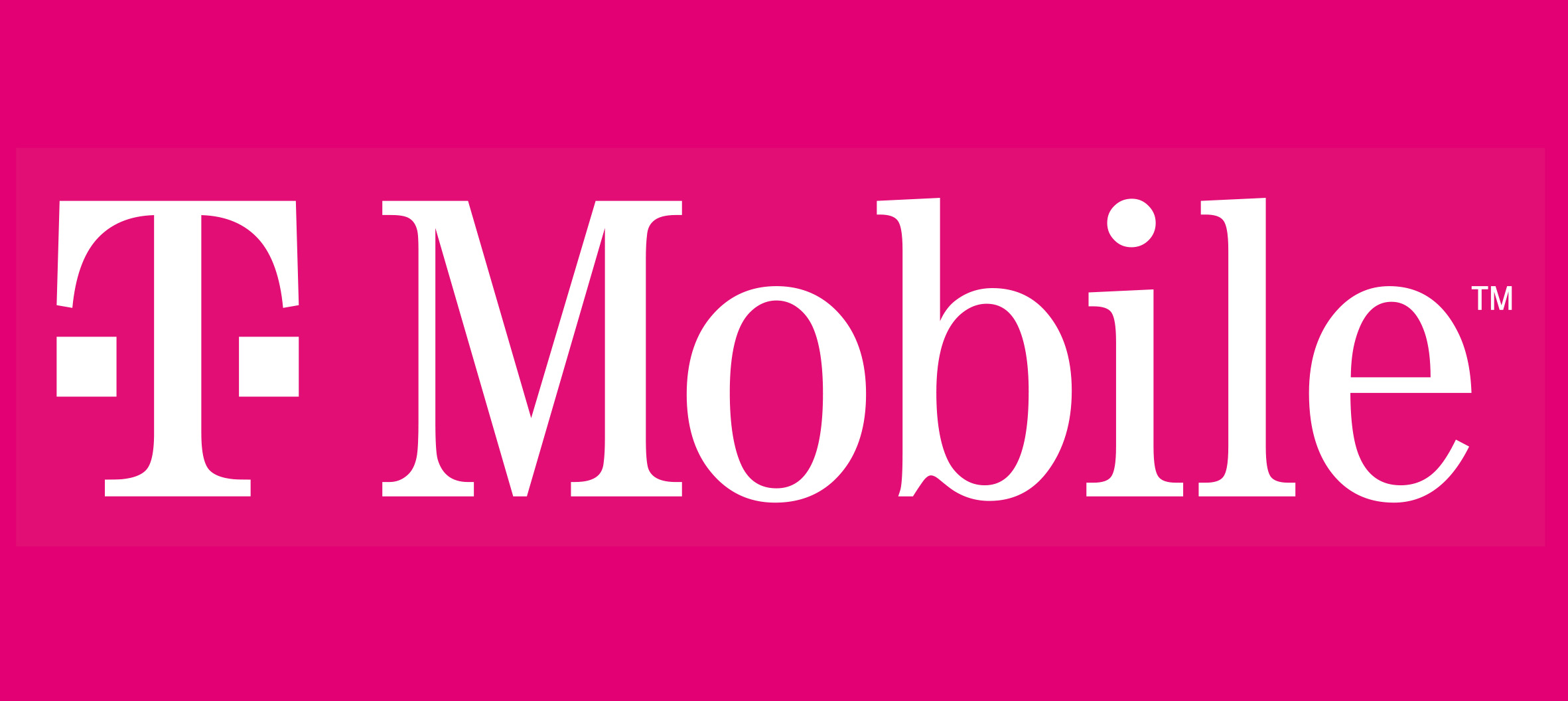Trailblazer Takeaways: 'Just Mercy' Author Bryan Stevenson on Achieving Equal Justice
The founder and executive director of the Equal Justice Initiative joined T-Mobile for its Talking with Trailblazers guest-speaker series

By Jade Childs
Recently, some 4,500 T-Mobile employees tuned in for a livestream conversation between EVP of T-Mobile for Business Mike Katz and Bryan Stevenson, the founder and executive director of the Equal Justice Initiative (EJI), an organization committed to challenging racial economic justice, ending mass incarceration and protecting basic human rights for the most vulnerable in our society. He is also notably the author of the New York Times bestselling memoir Just Mercy, which was adapted into a box office hit starring Michael B. Jordan as Stevenson.
The event was a part of T-Mobile’s ongoing Talking with Trailblazers series and took a deep dive into the societal and justice reforms needed in this country.
“I really wanted to use the law to protect people who might not be protected by our political process, who might not be protected by majoritarian outcomes,” the Harvard Law School graduate said of choosing his legal career. “I ended up coming to the Deep South to represent people on death row because I was deeply troubled by the fact that we have a criminal justice system that treats you better if you're rich and guilty than if you're poor and innocent. I was deeply troubled by the fact that people on death row were literally dying for legal representation because there is no right to counsel for the condemned after the initial trial and appeal. It also brought my interest in racial justice and helping the poor together. That's really how I came to being this."
Here are other key takeaways that Stevenson offered during this trenchant, of the moment Talking with Trailblazers event.
If we want to make a difference in the world, we've got to get “proximate.”
“I don’t think we should underestimate the power of getting proximate to people who have been mistreated, abused, knocked down, excluded and disfavored. If nothing else, in proximity we can wrap our arms around folks and we can affirm their humanity and affirm their dignity. For me and the staff at EJI, we are fully committed to that proximity even though when you're proximate to someone on death row and you’re standing next to someone who is going to be executed, that will be challenging for you. But we absolutely are persuaded that our ability to be effective is conditioned on our willingness to get proximate … to get close to the people who are directly impacted. If we're concerned about income inequality, we’ve got to get closer to the poor. We've got to get closer to the excluded. If we care about criminal justice reform, we've got to get closer to the incarcerated and the condemned.”
Hopelessness is the enemy of justice.
“I often say this, that hopelessness is the enemy of justice and justice prevails where hopelessness persists. Hope is what will get some of us to stand up when others say sit down and will get some of us to speak when others say be quiet, and it becomes a relationship. I'm both worried about the moment we're in with the pandemic and the impact it's having on people in jails and prisons, the impact it's having on the poor and communities of color. But I'm also very hopeful about this moment because I am seeing an energy, I'm seeing a resolve. I'm seeing companies having conversations they haven't had before. That's very exciting to me.
"But ultimately, my hope really comes by looking back at the generations that come before me. I'm the heir of a generation of people in Montgomery, Alabama that did so much more with so much less. I know I'm standing on their shoulders and they found a way to lift people up like me but with half the capacity and resources that I have in terms of material things. I have hope because if we had the will and the determination to overcome chattel slavery and to overcome lynching and terror and overcome segregation, we have to have the will and resolve to overcome these problems of over-incarceration and police violence.”
You can't really be informed until you know history.
“This problem of over-incarceration directly intersects with this legacy and history of racial inequality. That's why right now our work is really focusing on both of these areas, because we understand that we have to confront, we have to do something about this long history of bigotry and bias that has been sustained by silence and our collective indifference. The police throughout their history first were organized in communities and one of the primary tasks was catching people who might be runaway slaves. At the very outset, the police identity was aligned with sustaining and continuing and protecting the institution of slavery. After our reconstruction, it was the police who stepped back and allowed mob violence and lawlessness to terrorize black people for a century. When John Lewis and Dr. King and Amelia Boynton went to the Edmund Pettus Bridge dressed in their Sunday best, it was the uniformed police officers that beat and battered and bloodied them. That identity cannot be disconnected from these issues.”
If you want to help, you have to do your homework.
“I think if people try to do racial justice and racial equity work, or even diversity and inclusion work, without doing the education, it's almost like saying, ‘I want to be a nurse without learning anything about anatomy or about medicine or about healthcare.’ You can have a passion to help people who are sick, but until you have the knowledge, you're not going to be effective and you may do more harm than good. That's why I really do see this moment as a moment where we have to prioritize the learning, the education, the kind of conversations that really reposition our own understanding about what has to happen.”
We can't ever advance equity and opportunity if we only do the things that are comfortable and convenient.
“I’m not interested in talking about slavery and lynching and segregation because I want to punish America for this history. My interest is liberation. But to get there, we're going to have to be willing to do the uncomfortable truth-telling, to do the uncomfortable reimagining, rethinking — reevaluating systems and structures, to do the uncomfortable conversations that allow us to address these issues like they've never been addressed before.
"I've been working with folks in the NBA and I'm super proud of the players and the coaches that are using their platform to get people to see things and to hear things they wouldn't otherwise see. These coaches are actually opening their press conferences by reading from our calendar and I love it because what they're doing is taking advantage of the space they have to advance in understanding. Don't make it the burden of just people of color to address these issues, because that can be exhausting and overwhelming. But all of us have a role to play. I think when we all commit to that we create a better environment for everybody.”
Justice is a constant struggle.
“If we are willing to struggle, if we are willing to fight, if we're willing to get proximate, if we're willing to stay hopeful, if we're willing to do uncomfortable things, we can prevail, we can make progress. But if we are not, we will see these problems that are all around us continue to grow and deepen and manifest themselves in even more tragic waves. I would invite everybody to go to our website eji.org and become a part of that community of active educators that are sharing this information and knowledge.”

